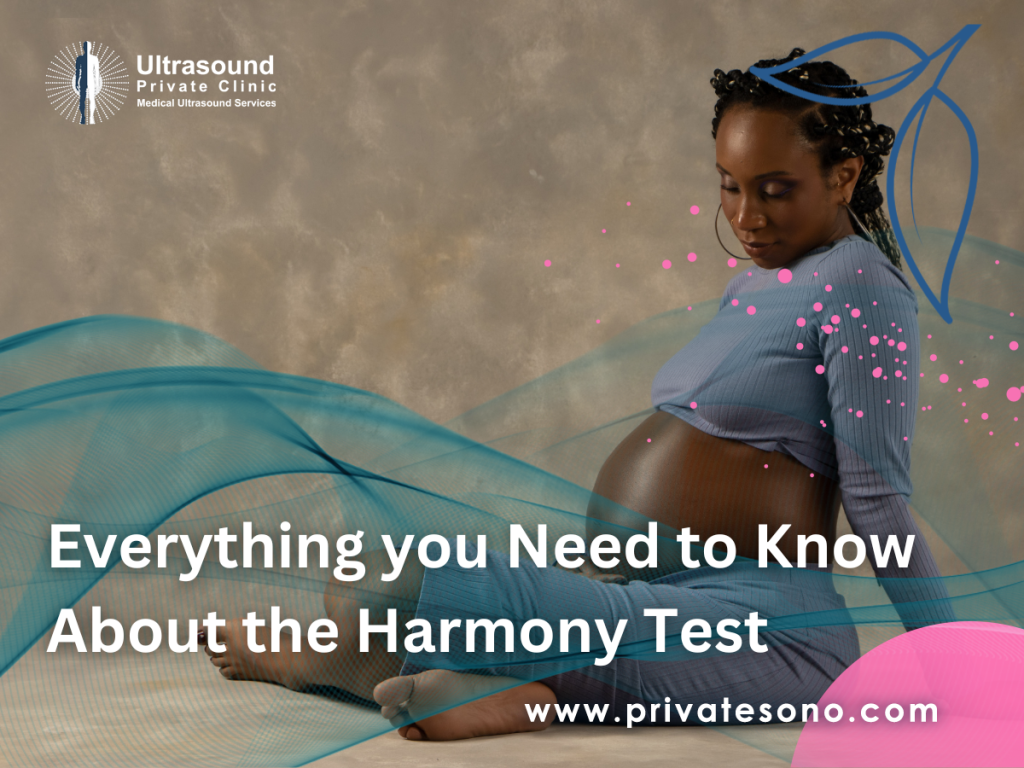The Harmony test is a non-invasive prenatal test (NIPT) that screens for chromosomal abnormalities associated with Down syndrome, Edwards syndrome, and Patau syndrome. It is also used to detect genetic conditions such as trisomy 18 and trisomy 13. This test is used to detect if a pregnant woman’s baby has a higher risk of having a chromosomal abnormality. It is one of the most accurate and reliable tests available for pregnant women and is recommended by many leading medical organizations. In this blog, we will discuss everything you need to know about the Harmony test, including the benefits and risks, information about the test itself, and more.
1. What is the Harmony Test?
The Harmony test is a non-invasive prenatal test (NIPT) that screens for chromosomal abnormalities associated with Down syndrome, Edwards syndrome, and Patau syndrome. It is also used to detect genetic conditions such as trisomy 18 and trisomy 13. The test looks for small amounts of fetal DNA that is present in the mother’s blood. It is more accurate than traditional screening tests such as the triple or quadruple screen, and is recommended by many leading medical organizations.
2. How is the Harmony Test Performed?
The Harmony test is performed by drawing a sample of the mother’s blood. This can be done at either your doctor’s office or at a lab. The blood is then tested for fetal DNA, which will indicate whether or not there is an increased risk for chromosomal abnormalities. If there is an increased risk, further testing may be recommended.
3. What are the Benefits of the Harmony Test?
The Harmony scan is a safe and reliable way to screen for chromosomal abnormalities in the fetus. It is more accurate than traditional screening tests, and it can be performed earlier in the pregnancy. This allows women to make informed decisions about their pregnancy earlier on, and can help to provide peace of mind.
4. What are the Risks of the Harmony Test?
The Harmony scan is a safe and reliable way to screen for chromosomal abnormalities, but it does carry certain risks. These include a small risk of false positives and false negatives. Additionally, the test is not 100% accurate, and other tests may be required to confirm a diagnosis.
5. Who Should Get the Harmony Test?
The Harmony test is recommended for pregnant women who are at an increased risk for chromosomal abnormalities. This includes women over the age of 35, women who have previously had a baby with a chromosomal abnormality, and those who have had abnormal results on other prenatal tests. Women who are not at an increased risk for chromosomal abnormalities may also choose to have the Harmony test for peace of mind.
6. How Accurate is the Harmony Test?
The Harmony scan is considered to be one of the most accurate and reliable tests available for pregnant women. It is more accurate than traditional screening tests, and is recommended by many leading medical organizations. The test has a reported detection rate of up to 99% for Down syndrome, and is considered to be very accurate in detecting other chromosomal abnormalities as well.
7. How Soon Can the Results be Obtained?
The results of the Harmony test can usually be obtained within 7-10 days of the sample being taken. If the results are abnormal, further testing may be recommended.

8. Is the Harmony Test Safe?
The Harmony test is considered to be safe and reliable. There is a small risk of false positives and false negatives, but the test is generally considered to be very accurate.
9. What is the Cost of the Harmony Test?
The cost of the Harmony test varies depending on the clinic or lab performing the test. Most clinics and labs charge between $400 and $800 for the test.
10. Is the Harmony Test Covered by Insurance?
Many insurance companies cover the cost of the Harmony test. However, it is important to check with your insurance provider to see if the test is covered.
11. What is the Difference Between the Harmony Test and Other Prenatal Tests?
The Harmony test is more accurate than traditional screening tests such as the triple or quadruple screen. Additionally, the Harmony test can be performed earlier in the pregnancy than other tests, and it can detect a wider range of chromosomal abnormalities.

12. What Should I Do if My Harmony Test Results are Abnormal?
If the results of the Harmony test are abnormal, further testing may be recommended. This could include an ultrasound, amniocentesis, or other tests to confirm the diagnosis.
Conclusion
The Harmony test is a safe and reliable way to screen for chromosomal abnormalities in the fetus. It is more accurate than traditional screening tests, and it can be performed earlier in the pregnancy. This allows women to make informed decisions about their pregnancy earlier on, and can help to provide peace of mind. The results of the Harmony test can usually be obtained within 7-10 days of the sample being taken. If the results are abnormal, further testing may be recommended.
Frequently Asked Questions
Q: What is the Harmony Test?
A: The Harmony test is a non-invasive prenatal test (NIPT) that screens for chromosomal abnormalities associated with Down syndrome, Edwards syndrome, and Patau syndrome. It is also used to detect genetic conditions such as trisomy 18 and trisomy 13. The test looks for small amounts of fetal DNA that is present in the mother’s blood.
Q: How is the Harmony Test Performed?
A: The Harmony test is performed by drawing a sample of the mother’s blood. This can be done at either your doctor’s office or at a lab. The blood is then tested for fetal DNA, which will indicate whether or not there is an increased risk for chromosomal abnormalities.
Q: What are the Benefits of the Harmony Test?
A: The Harmony test is a safe and reliable way to screen for chromosomal abnormalities in the fetus. It is more accurate than traditional screening tests, and it can be performed earlier in the pregnancy. This allows women to make informed decisions about their pregnancy earlier on, and can help to provide peace of mind.
Q: What are the Risks of the Harmony Test?
A: The Harmony test is a safe and reliable way to screen for chromosomal abnormalities, but it does carry certain risks. These include a small risk of false positives and false negatives. Additionally, the test is not 100% accurate, and other tests may be required to confirm a diagnosis.
Q: Who Should Get the Harmony Test?
A: The Harmony test is recommended for pregnant women who are at an increased risk for chromosomal abnormalities. This includes women over the age of 35, women who have previously had a baby with a chromosomal abnormality, and those who have had abnormal results on other prenatal tests. Women who are not at an increased risk for chromosomal abnormalities may also choose to have the Harmony test for peace of mind.
Q: How Accurate is the Harmony Test?
A: The Harmony test is considered to be one of the most accurate and reliable tests available for pregnant women. It is more accurate than traditional screening tests, and is recommended by many leading medical organizations. The test has a reported detection rate of up to 99% for Down syndrome, and is considered to be very accurate in detecting other chromosomal abnormalities as well.
Q: How Soon Can the Results be Obtained?
A: The results of the Harmony test can usually be obtained within 7-10 days of the sample being taken. If the results are abnormal, further testing may be recommended.
Q: Is the Harmony Test Safe?
A: The Harmony test is considered to be safe and reliable. There is a small risk of false positives and false negatives, but the test is generally considered to be very accurate.
Q: What is the Cost of the Harmony Test?
A: The cost of the Harmony test varies depending on the clinic or lab performing the test. Most clinics and labs charge between $400 and $800 for the test.
Q: Is the Harmony Test Covered by Insurance?
A: Many insurance companies cover the cost of the Harmony test. However, it is important to check with your insurance provider to see if the test is covered.
Q: What is the Difference Between the Harmony Test and Other Prenatal Tests?
A: The Harmony test is more accurate than traditional screening tests such as the triple or quadruple screen. Additionally, the Harmony test can be performed earlier in the pregnancy than other tests, and it can detect a wider range of chromosomal abnormalities.
Q: What Should I Do if My Harmony Test Results are Abnormal?
A: If the results of the Harmony test are abnormal, further testing may be recommended. This could include an ultrasound, amniocentesis, or other tests to confirm the diagnosis.
